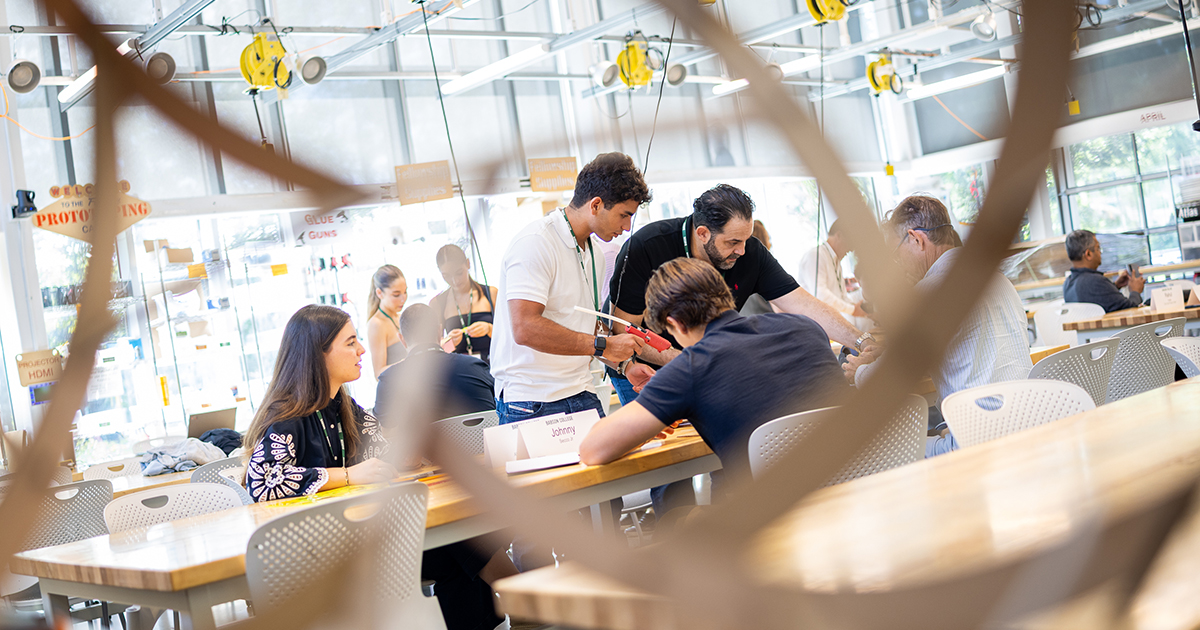Field Research: Tips for Managers in the New Normal

When it comes to entrepreneurial leadership during the COVID-19 crisis, it is essential for organizations to look inward and outward—and a few simple tips for managers and founders can help startups become even stronger.
“COVID-19 is different from other types of crises in that it is affecting both people’s professional and personal lives at the same time,” said Babson College Assistant Professor of Entrepreneurship Eliana Crosina.
Crosina teaches Foundations of Management and Entrepreneurship, an introductory class that exposes Babson first-year students to the inner workings of creating and operating new ventures from scratch.
“I just happened to be in the field collecting data, and COVID-19 became an important part of my interviews with small business owners.”
Assistant Professor Eliana Crosina
Her research focuses on issues of identity in and around entrepreneurial contexts. “At the broadest level, most of my current work concerns how founders and others bring who they are to the work that they do, and related implications,” said Crosina.
Finding herself in the field conducting qualitative research, Crosina realized that the potential for learning during this time of crisis was a rare opportunity. “I just happened to be in the field collecting data, and COVID-19 became an important part of my interviews with small business owners. The pandemic disrupted some of these founders and their organizations.”
With that in mind, new and different questions arose. How should organizations respond to the new normal? What should managers do to guide their teams? Rooted in both her prior and ongoing research, Crosina offers the following reflections.
Three Tips for Managers in the New Normal
- Take stock and realign – Founders should consider doing an “identity audit,” and ask the foundational questions, who are we, what do we care about, and what energizes us? This is important because many startups today will not likely be able to continue doing things the way they were doing them before COVID-19.
- Make things happen now – Founders must then figure out what connections are going to yield support—psychological and otherwise—and actively nurture those relationships.
- Re-create and/or repurpose – In addition, they should ask themselves, ‘what do we want to do, do we want to and need to try to re-create what we had before, or, are we better served by doing things a little bit differently now?
Looking Inward and the Entrepreneurial Leadership Imperative
At times of crisis, managers might benefit from looking inward to move forward. Especially now, combined with resilient leadership and self-awareness in leadership, an entrepreneurial mindset can help them discover new opportunities. “When entrepreneurs go through moments of disruption and change, transformative innovations occur.”
“Especially when times are not settled, it’s all about developing practices that can help us look inward, understand who we are, and then, based on this, best tap into the environment—whatever that environment might look like—to make new things, perhaps different things happen,” said Crosina.
Crosina expects that the new normal will look different for different types of organizations, but she also expects some changes to stay. And, for that, an entrepreneurial mindset is, and will continue to be, an important tool. This type of disrupted environment is fertile ground for entrepreneurial leaders.
“Keep on moving, and maybe learn how to embrace—or cope—with adversity as a catalyst to innovation,” she said.
Posted in Community



